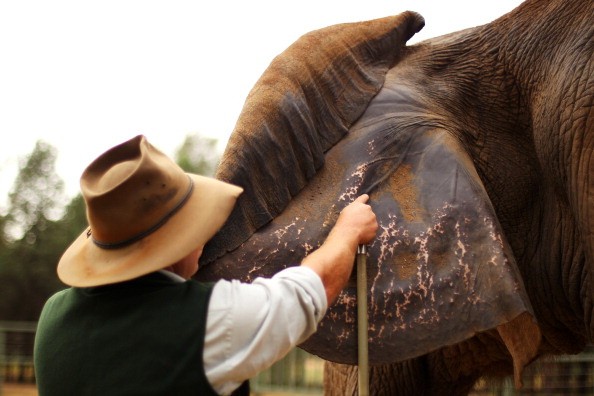According to a study, parasites may negatively impact animal populations' health more than previously anticipated. The new University of Alberta study contends that big parasites like tapeworms, which may affect everything from livestock to unchecked animals, significantly affect the overall physical health of their mammal hosts.

Parasites Infecting a Population
Kyle Shanebeck, a Ph.D. candidate at the Faculty of Science's Department of Biological Sciences, who oversaw the study, claims that parasites don't necessarily need to kill the animal to manage a population.
According to Shanebeck, all species have at least one parasite among many. The greater the prevalence of a parasite within a community and the greater its potential for harm, the less lethal it is.
Categorizing Parasites

According to him, they may impair an animal's capacity to absorb nutrients, impacting its behavior and digestive health. This may cause the animal to become more hostile or alter where it forages. As the body expends energy mounting an immune response to combat them, these parasites also inhibit or decrease immunological function, which might exacerbate a secondary infection.
Shanebeck's team categorized the various parasite impacts on the host for the study based on how they affected an animal's energy state. A meta-analysis of parasites in a domestic, laboratory, and wild mammals led to 142 peer-reviewed articles describing 599 effects of infection-condition. Across taxonomic groupings, "we discovered consistently substantial detrimental impacts of infection on host energy circumstances."
Carbohydrates are less available to the animal because large parasites like tapeworms, flatworms, and flukes devour them. When there is a supply problem, energy is misdirected, diminishing reserves, according to Shanebeck, who compares it to a power grid. As the body chooses between survival and reproduction, "rolling blackouts" ensue.
For instance, although parasitic worms in cattle won't cause the animal to die, the associated immunological stress and other problems, such as diarrhea, may impact milk output, costing farming operations money. The overall health consequences of parasites are harder to assess in less controlled animal environments, which may be one reason these effects are considered insignificant.
Researchers Rationale
The focus of evaluating the health of a wildlife community has traditionally been on infectious diseases, which may transfer between species and possibly even from animals to people.
Parasites of animals and humans can take many forms, such as helminths (worms), arthropods (lice, ticks, mosquitoes, etc.), and protozoa. A parasite is a creature that lives in or on another and obtains its nutrition from that other organism or "host." Over 1,000 different parasite species exist worldwide that harm domesticated animals. Depending on where they reside on their host, they can be roughly categorized as either exterior or internal.
Handling Parasite Problems
One of America's biggest problems is that in the middle to late 1800s, the Department of Agriculture was required to recognize, comprehend, and create efficient defenses against the parasites afflicting American cattle. The nation's commercial cattle industry has experienced tremendous expansion due to transportation and local and international trade improvements. Farmers and ranchers started to demand that their government get involved in finding a solution since they wanted to reduce parasite damage to make their goods viable. Congress created the USDA's Bureau of Animal Industry's Zoological Division in 1886, complete with a laboratory devoted to researching animal parasites-how they increase and how they may be managed.
Related Article : Man in Spain Hospitalized After a Potentially Fatal Tick Bite
For more health and medicine related news, don't forget to follow Nature World News!
© 2025 NatureWorldNews.com All rights reserved. Do not reproduce without permission.





